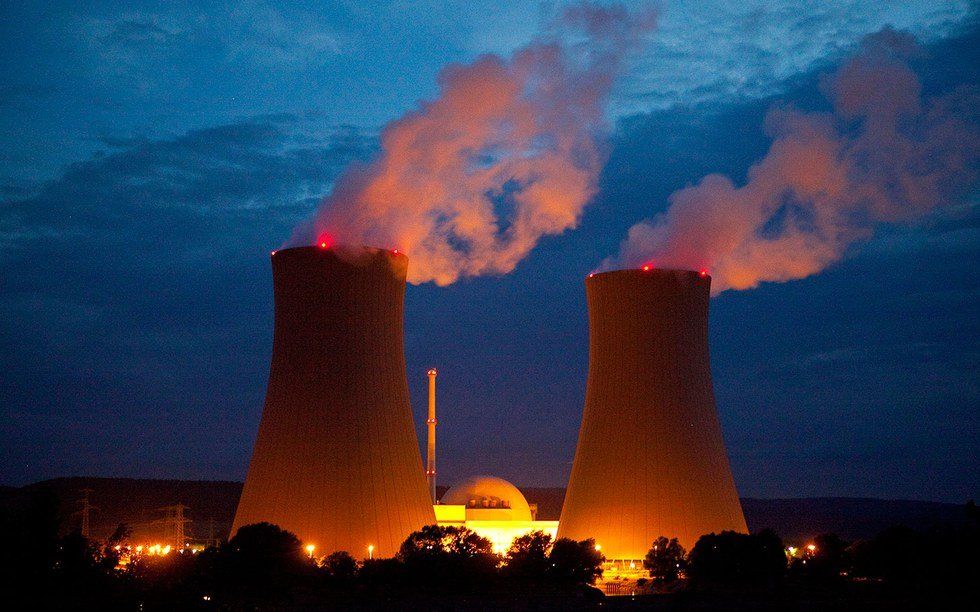Since the launch of the nuclear era in the mid 1950s, the most prominent issue associated with nuclear power production remains the storage and disposal of radioactive waste. The issue of the uncertainty supplementary to nuclear waste disposal and storage has proven to be the principal factor behind the slowing of expansion of nuclear power production. Any practice that utilizes radioactive material produces radioactive waste. Processes such as assorted types of industrial means yield radioactive consequences, in particular, nuclear power production. Nuclear waste’s level of radioactivity can vary as well as the physical form it appears in (solid, liquid, gas). Radioactive waste is highly unpredictable; a key issue regarding radioactive waste itself is the time period in which it remains radioactive. Waste can remain radioactive for as little as a few hours or for as much as thousands upon thousands of years. The unpredictable and volatile features of radioactive waste (in this case pertaining to nuclear waste) are essentially the reasoning for why storage and disposal or radioactive waste is such a predicament. Ultimately, proper removal of nuclear waste is for the well being of the human population and overall worth of the environment. An international consensus has been reached depicting that each and every nation is accountable for the disposal and storage of their own radioactive nuclear waste for the benefit of humankind and the environment.
Despite the international consensus between nations to dispose of and store radioactive nuclear waste, each nation has their own custom way of doing so. For example the United States utilizes the "top-down" method, France employs deliberative democracy, and Canada emphasizes a strict bond of trust between technocrats and the public. As one can concur, there are multiple options on how to form a policy concerning disposal and storage of radioactive nuclear waste, as displayed by diverse disposal policies employed by the United States, Canada and France.
All three nations [The United States, France and Canada] are avid producers and consumers of nuclear energy who employ there own distinct nuclear energy policy, more specifically their own distinct waste disposal and storage policies. For means of comparison between France and Canada, the United States employs a nuclear waste disposal policy that utilizes the "top-down" approach. This is where elites and technocrats who specialize in the storage and waste of radioactive nuclear waste dominate the foundation of the nuclear energy policy. The essential benefit of the United States’ top-down approach is that it produces an invaluable bond of trust between the United States’ elected officials and the public of the U.S. With something as volatile as nuclear power production and the handling of radioactive byproduct, a sense of trust is highly necessary in order for a nation’s nuclear waste disposal policy to be exceedingly efficient. The public leaves the particulars of the nation’s nuclear waste disposal policy such as the widespread research of geological formations to the highly specialized hands of the technocrats. By doing so, the public gains a sense of legitimacy towards the aforementioned technocrats and elected officials. Ergo, the public trusts the decisions of the elites and holds them to high regard. The United States employs a highly distinct nuclear waste disposal policy that contrasts on many levels and key issues with the waste disposal policy of Canada. As compared to the United States’ disposal policy where decisions are left to the highly trained elite and technocrats, Canada’s waste disposal policy can be regarded as the contrary. Canada employs a nuclear waste disposal policy that puts an emphasis on deliberative democracy. Under this policy, Canadian citizens are granted the opportunity to agree or disagree with the basic circumstances of the public policies that affect them. As compared to the United States, Canada puts a much larger emphasis on public choice and inclusion in regards to their nuclear waste disposal policy. Canada regards their nuclear disposal policy as more ‘whole’ on account of the importance put on public inclusion, as compared to the United States where decision on nuclear policy is left in the hands of the elite. With reference to Canada’s and the United States’ nuclear waste disposal policy, France’s nuclear policy aligns more so with the policies of United States rather than those of Canada. The French are in a somewhat different situation as compared to Canada and the United States due to France’s extreme dependence on nuclear power production. The French put an emphasis on trust between the nation’s public and elected officials dealing with the likes of nuclear waste disposal. There is little controversy among the French concerning whether or not to utilize nuclear power production, due to the fact that nuclear power production produces an essential amount of the nation’s power. Due to this heavy reliance on nuclear power, the French must have trust in their elites and technocrats while they pursue nuclear power production.
Ultimately nuclear waste disposal is a multifaceted issue that each country must tackle on its own. Each country, in particular France, Canada, and the United States have crafted the best nuclear waste disposal policy to meet the needs of the nation.





















